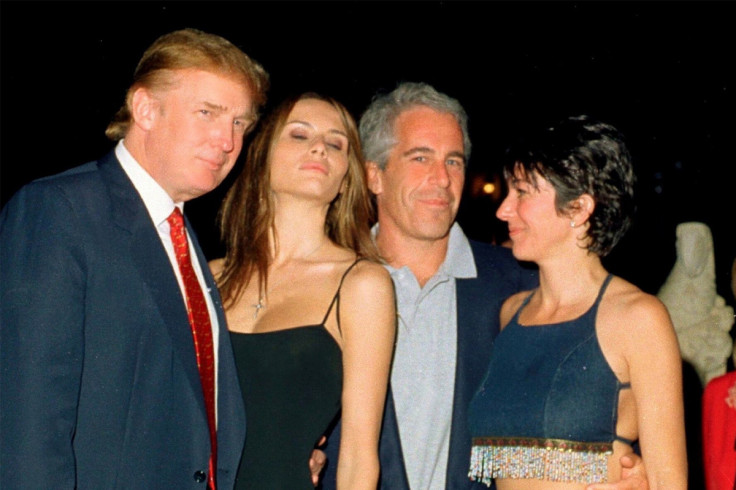Trump Rocked By Furious Epstein Survivor Testimonies As Congress Braces For Explosive Vote
Survivors confronted lawmakers at Capitol Hill ahead of a House vote to compel the Justice Department to release Epstein investigation files.

A group of Jeffrey Epstein's survivors delivered powerful testimony on Capitol Hill as lawmakers prepared to vote on a bill to force the release of the Department of Justice's files, and their words have turned a procedural House vote into a political crisis.
Survivors held a press conference at the US Capitol on 18 November 2025 to press lawmakers for transparency and to demand accountability, holding photographs of themselves as children and urging Congress to put victims ahead of politics. Bipartisan backers of the disclosure effort convened the event, which was attended by Reps Thomas Massie, R-Ky., and Ro Khanna, D-Calif., as well as other lawmakers, including Rep Marjorie Taylor Greene, as the House prepared to vote on the Epstein Files Transparency Act.
The testimony cut across party lines and appeared to help prompt a change in tone from the White House: President Donald Trump publicly abandoned prior opposition and said he would sign the bill if it reached his desk.
Survivors' Testimony: Personal Stories, Political Pressure
Survivors spoke in plain, emotional terms about the lasting impact of Epstein's crimes and the secrecy that followed investigations; Haley Robson, who identified herself as a survivor and a former Trump voter, held up a photo of herself as a child and said, 'We are fighting for the children.'
Her remarks, and those of others at the press conference, made clear that the push for release is framed as both a transparency fight and a demand for recognition of survivors' suffering. Video recordings of the event show Robson confronting the political calculus of lawmakers directly and urging them to act.
Lawmakers who organised the event said they expected public outrage once the full files were released. Representative Ro Khanna, speaking at the same briefing, framed the vote as non-partisan: he described the discharge petition and the push for a vote as a citizens' demand for truth, not a partisan attack. Representative Thomas Massie said congressional action was necessary to prevent further stonewalling and to ensure victims' stories were placed on the public record. Video of the press conference is available on C-SPAN and multiple broadcast feeds.
Legal And Institutional Stakes: What The Bill Would Do
The Epstein Files Transparency Act, advanced via a discharge petition that forced a House vote, would require the Department of Justice to make public much of its investigative file on Epstein within a set timeframe, with limited exceptions for ongoing investigations and legitimate privacy redactions.
Congressional records linked to the legislative push and the public schedule show the motion moved quickly after advocates and certain lawmakers secured the signatures necessary to compel a vote. The bill's backers argue that transparency is essential to restoring public faith and to allowing independent scrutiny of how prior investigations were conducted.
Critics warn that raw disclosures could risk privacy and jeopardise journalistic or prosecutorial sources unless redactions are carefully applied. House leadership have expressed concern about protecting victims' identities even as they signalled that a vote was imminent; Speaker Mike Johnson described the action as a politically charged move but indicated he would support release with appropriate safeguards. The political tug-of-war underlines how disclosure will not end debate; it will only shift it into a legal and evidentiary arena.
Why Survivors Say The Files Matter — And What Happens Next
Survivors and advocacy groups argue the unredacted files could reveal systemic failures: prosecutorial decisions, plea-deal mechanics, and possibly previously withheld communications that may implicate public figures or illuminate institutional neglect. They contend that only by seeing the documents can the public and lawmakers fully assess accountability measures and reform needs.
If the House passes the measure, the bill would move to the Senate, where its fate is less certain; even if enacted, the Department of Justice would retain limited authority to withhold or redact materials tied to active investigations or privacy interests. That legal reality ensures the release would prompt subsequent legal fights over redactions and scope.
The immediate effect, however, is political: survivors have transformed a procedural vote into a public moment that forces elected officials to take a stance on transparency, victims' rights, and the balance between privacy and accountability. The footage of survivors' testimony, available from multiple primary sources, including Capitol Hill livestreams and social posts, is already shaping public discourse.
The survivors' plea on the steps of the Capitol has made the release vote as much about personal accountability as about documents, and Washington's response will be judged long after the papers are printed.
© Copyright IBTimes 2025. All rights reserved.





















